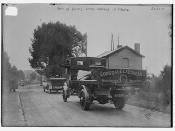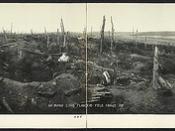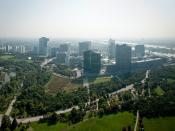A. The king
-1789 Loius XVI
-Married to Marie Antoinette (Austria)
-Lived in luxury at palace of Versailles
-Believed in the "Divine right" of kings (g-d had put him on this earth as his representative on the throne)
-Only G-d could remove him from the throne. The people could not remove him. In theory he ruled as absolute power (absolute Monarch) - monarchy in which kings power is unlimited.
- Legislative - the Estate General
(Parliament) had not met since 1614 - lit de justice - overule the Parliament
-Judicial - lettre de cachet (a letter that could put a person into prison without a trial
-Executive - unlimited executive
B. Clergy - first estate
-Upper clergy
-Lower clergy
Upper clergy
-e.g. Archbishops, Abbots
Many churchman - took position for advantages
-85% of Church's income used by them
-Owned and rented out 1/5 of land of France
-Exempt paying taxes and army services
-Only subjected to church courts (above courts and tried in these courts)
-Received tithes from 3rd Estate (1/10 of peoples salary)
Lower Clergy
-e.g. Priests, monks (from 3rd estate)
-Poor but dedicated - only received 15% of Church's income
-Critical of Upper Clergy - sympathized with 3rd Estate
Therefore Upper clergy - content want status quo to remain
Therefore Lower Clergy - wanted to fight, welcomed revolt
C. Nobles - 2nd estate
-Nobles of the Estate
-Nobles of the Sword
-Nobles of the Robe
i)Nobles of the Estate
-Lived on their country Estates (owned Land)
-Insisted Peasants pay heavy Feudal Dues
-Taxes
-Service / labor
-Share of crops
ii)Nobles of the Sword
- Owned land but most lived in luxury at Palace of Versailles originally wealthy but wasted fortunes and were supported by the state - came from taxes of the 3rd estate. Highest Position in army...


